Go Lean Commentary
The 2020 US General Election is over – finally! And the winner is:
Cannabis
Voter approval for Marijuana decriminalization or legalization was on the ballot in a number of states. In almost every case: Cannabis (or Marijuana) won.
Ouch!
While this is not the case in most Caribbean countries, the fact that the giant United States of America has changed their views towards Cannabis – both legally and morally – will most definitely have an effect on us in our region. The American hegemony rules … in both trade and tourism. The enormity of the American impact can be visualized with this puzzle:
Where does an 800 Gorilla sit? Anywhere he wants.
There were a lot of BIG ISSUES in the Decision 2020 campaigns, but this one should not skip our attention, as the legalization of recreational marijuana can have major upheavals on society. In a previous blog-commentary – observing and reporting on the legalization of Cannabis in the US State of Michigan on December 1, 2019 – by the movement behind the 2013 book Go Lean…Caribbean, a direct correlation was made to chaos in society; see this excerpt:
Marijuana in Detroit – Chaos on Chaos – December 17, 2019
It turns out that the Marijuana eco-system brings chaos. If the community is already chaotic, then that disposition is heightened, intensified and exacerbated.
This commentary is an analysis of the Decision 2020 issues. It is a continuation of the monthly Teaching Series from the Go Lean movement for November 2020. Every month, a Teaching Series addresses issues germane to Caribbean life and culture. This one is not about the presidential candidates for Decision 2020, but rather this “Hot Button” issue of Cannabis.
We have previously covered issues about the presidential race in 5 blog-commentaries for October 2020, plus three subsequent ones in November – this is the fourth. All of these entries are relevant for Decision 2020 as they relate to the impact of the Caribbean on America’s politics … and the impact (and lessons) of America’s politics on the Caribbean. See the full catalog of this multi-part, multi-month Decision 2020 Teaching Series here as follows:
- Decision 2020: Puerto Rico claps back at Trump
- Decision 2020: Haiti’s Agenda 2016 ==> 2020 – Trump never cared
- Decision 2020: Latino Gender Gap – More Toxic Masculinity
- Decision 2020: More Immigration or Less
- Decision 2020: What’s Next for Cuba & Venezuela
——– After the Vote: - Decision 2020: Hasta La Vista Mr. Trump
- Decision 2020: Voices From the ‘Peanut Gallery’
- Decision 2020: It is what it is; ‘we are who we are’
- Decision 2020: The Winner: Cannabis
The take-away from all of these considerations is that American politics and social engineering have a bearing on our Caribbean eco-system; their domestic policy affects moral issues like recreational drugs will impact our Foreign Policy, trade practices and touristic hospitality. We wish American Cannabis policy and Decision 2020, was just their business, but “No, we are affected; just like we are down wind from a pot-smoking crowd”; we will be affected. So this is our business too!
Welcome to heavy-lifting…
See how this Cannabis victory was portrayed in the news media production here:
Title: ‘A tipping point’: Psychedelics, Cannabis win big across the country on election night
Sub-title: “People are realizing it’s not just about getting high,” said Avis Bulbulyan, CEO of SIVA Enterprises. “This is a tipping point for drug policy absent any federal reform.”
By: Alicia Victoria LozanoAs the nation awaits a final result from the presidential election, a clear winner emerged Tuesday: drugs.
Measures to legalize cannabis and decriminalize other drugs won major victories this week as five states — Arizona, New Jersey, South Dakota, Montana and Mississippi — legalized some form of marijuana use and Oregon became the first state to make possession of small amounts of harder drugs, including cocaine, heroin and methamphetamine, violations not punishable by jail time.
Voters in Oregon and Washington, D.C., also approved measures to allow for the therapeutic use of psychedelic mushrooms, which are already being prescribed to help some terminally ill patients in Canada cope with pain and end-of-life anxiety.
“People are realizing it’s not just about getting high,” said Avis Bulbulyan, CEO of SIVA Enterprises, a cannabis business development and solutions firm based in Glendale, California, near Los Angeles. “This is a tipping point for drug policy absent any federal reform.”
On Tuesday, South Dakota became the first state whose voters approved both recreational and medical cannabis in the same election. Medicinal marijuana also was made legal in Mississippi. Meanwhile, New Jersey, Montana and Arizona all legalized recreational cannabis.
“Despite this public consensus, elected officials have far too often remained unresponsive to the legalization issue,” Erik Altieri, executive director of the National Organization for the Reform of Marijuana Laws, or NORML, said in a statement.
NORML has lobbied for the end of marijuana prohibitions since it was founded in 1970.
“These results once again illustrate that support for legalization extends across geographic and demographic lines,” Altieri said. “The success of these initiatives proves definitively that marijuana legalization is not exclusively a ‘blue’ state issue, but an issue that is supported by a majority of all Americans — regardless of party politics.”
Just 10 years ago, recreational cannabis was illegal in all 50 states, but that started to change in 2012, when Colorado and Washington became the first states to legalize marijuana for recreational use. At the time, California, which has one of the biggest and oldest marijuana markets in the country, allowed only medicinal use of cannabis.
A domino effect followed, with several more states venturing into the medicinal markets, including Pennsylvania in 2016 and New York in 2014. Now, 15 states, two territories and Washington, D.C., have legalized marijuana for recreational use, while 34 states and two territories allow medical marijuana.
“It’s fantastic to see this cannabis sweep,” said Stuart Titus, CEO of Medical Marijuana Inc., a hemp products company based in San Diego. “There is a tremendous momentum building. I think we’re right on the precipice of changing federal policy with so many states coming online.”
Despite the ballot initiatives, marijuana and other drugs remain illegal at the federal level. The Drug Enforcement Administration continues to classify cannabis as a Schedule 1 drug akin to LSD, heroin and ecstasy.
In New Jersey, some advocates for cannabis legalization worry that the state ballot measure remains too murky and would not tackle social justice concerns surrounding the so-called war on drugs.
The question posed to voters appears simple at first glance: “Do you approve amending the Constitution to legalize a controlled form of marijuana called ‘cannabis’?”
While the majority of voters said yes, the language would not necessarily decriminalize all adult-use cannabis. Instead, it would make only “a controlled form” of the plant legal, said Chris Goldstein, a regional organizer for NORML.
“New Jersey voters sent a message to the Legislature — they want prohibition to end,” he said. “They want people to stop getting arrested.”
The Legislature will now have to pass another measure to set up the new cannabis marketplace. Whether that will reduce marijuana arrests and convictions remains to be seen, Goldstein said.
Meanwhile, Arizona’s measure allows people convicted of certain cannabis crimes to seek expungement of their records. Arizona voters narrowly defeated a legal pot proposal in 2016.
Cannabis was not the only drug on the ballot.
In Oregon, voters approved Measure 110 to allow a person found in possession of small amounts of hard drugs to avoid jail time by paying a $100 fine or attending an addiction recovery center. The centers would be funded through tax revenue collected from the state’s legal cannabis program.
Separately, Oregon voters passed measures to decriminalize psychedelic drugs, as did voters in Washington, D.C.
In Washington, D.C., Initiative 81 will lower the enforcement priority for “entheogenic plants and fungi,” or psychedelic mushrooms and mescaline-containing cacti. The ballot measure would not legalize psychedelics in the nation’s capital.
Oregon, however, became the first state to legalize psilocybin, also called magic mushrooms.
Measure 109 calls for the manufacture and therapeutic use of psilocybin to treat patients with mental health disorders. Some research suggests that psilocybin, when ingested in small doses under supervised settings, can ease stress and induce feelings of happiness.
In one recent study, patients who were given a single dose of the psychedelic drug to ease depression and anxiety still felt its positive effects years later. The patients were given small amounts of psilocybin in 2016 to look at whether it could ease cancer-related anxiety and depression. Eighty percent of the patients said their symptoms faded.
“What is permanent is that I don’t have anxiety about cancer. Not only about my cancer returning, but how I viewed my reoccurrence when it did happen,” Dinah Bazer, who was diagnosed in March with a type of rare gastrointestinal cancer, said at the time.
Source: Posted November 4, 2020; retrieved November 20, 2020 from: https://www.nbcnews.com/politics/2020-election/tipping-point-psychedelics-cannabis-win-big-across-country-election-night-n1246469
———-
Title: MAP – See the States where Marijuana is legal
Sub-title: Nationwide, 15 states, two territories and Washington, D.C., have legalized marijuana for recreational use, while 34 states and two territories allow medical marijuana.
By: Jiachuan Wu and Daniella SilvaVoters in New Jersey, Arizona, Montana and South Dakota approved ballot measures Tuesday that would legalize recreational marijuana. Mississippi approved the use of medical marijuana for people with debilitating conditions.
Nationwide, 15 states, two territories and Washington, D.C., have legalized marijuana for recreational use, while 34 states and two more territories allow medical marijuana.
See which states allow marijuana for medical and/or recreational use.
Source: Posted and retrieved November 4, 2020 from: https://www.nbcnews.com/news/us-news/map-see-if-marijuana-legal-your-state-n938426?icid=related
Do you see the slippery slope? Not only Cannabis, but other psychedelic drugs as well? See Appendix VIDEO below.
This is a familiar theme – the emergence of medical-then-recreational marijuana in mainstream society – for the Go Lean movement; we have repeatedly blogged on this subject; consider this sample of previous submissions:
| https://goleancaribbean.com/blog/?p=18737 | Marijuana in Detroit – Chaos on Chaos |
| https://goleancaribbean.com/blog/?p=14836 | Counter-culture: Pushing for Change |
| https://goleancaribbean.com/blog/?p=14480 | Managing Mental Health in the Caribbean – Marijuana Use Intensity |
| https://goleancaribbean.com/blog/?p=13882 | Managing ‘Change’ in California |
| https://goleancaribbean.com/blog/?p=12703 | Lessons from Colorado: Legalized Marijuana – Heavy-lifting! |
| https://goleancaribbean.com/blog/?p=1386 | Marijuana in Jamaica – Puff Peace |
As related previously, the ecosystem around Marijuana use is not purely an economic equation; it also addresses security concerns and Public Health issues:
There will be Winners and Losers.
Marijuana or Cannabis is a drug! Plain and simple! People will get addicted and society must deal with addiction as a Mental Health reality.
Overall, the position of the Go Lean movement is:
“We are not ready … for the chaos of recreational marijuana. We had better get ready now because this change is coming soon”.
The book Go Lean…Caribbean (Page 36), posits that the Mental Health eco-system in the region must get ready. We must reboot, empower and elevate our Mental Health facilitations. The chore of doing this is too big for any one Caribbean member-state alone. We need help!
The help we need in the Caribbean is not an American consideration. The candidates for Decision 2020 have no positions on the Caribbean Mental Health facilitations; this is on us … alone.
Mental Health affects everyone; everybody is involved. No one is spared from Mental Health challenges; consider these everyday Mental Health realities:
- Bereavement
- Post-Partum Depression (for new mothers)
- Post Trauma Stress Disorder
- Drug Abuse and Alcohol Counseling
- Suicide Prevention
The Mental Health ecosystem must be optimized to address the needs of all the people all the time. This is part of the standard offering of local governance. This is the actuality of the Social Contract on the societal engines of economics, security and governance. This Social Contract means …
… where citizens surrender some of their freedoms and submit to the authority of the State in exchange for protection of remaining natural and legal rights.
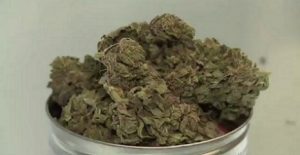 Caribbean stewards – government and community leaders alike – have just a little time to get ready for more societal Chaos brought on by recreational marijuana; (and possibly other recreational drugs – see Appendix VIDEO).
Caribbean stewards – government and community leaders alike – have just a little time to get ready for more societal Chaos brought on by recreational marijuana; (and possibly other recreational drugs – see Appendix VIDEO).
If you can’t stand the heat, get out of the kitchen.
Of no, wait! that’s not an option either.
Change – good and bad – is coming!
If you can’t stand the heat … get out of the kitchen and allow cooks and kitchen stewards who can stand the heat.
This is the new reality. We must deliver on our societal deliverables.
Change brings Chaos.
Chaos brings change.
7 years ago, the Go Lean book was presented to the Caribbean region as a roadmap to get ready for unavoidable Agents of Change. The roadmap is ready.
We hereby urge all Caribbean stakeholders to lean-in to this roadmap to reform and transform the regional economic engines, security apparatus (including Public Health facilitations), and our regional governance. This is how we will make our Caribbean homeland a better place to live, work, heal and play. 🙂
About the Book
The book Go Lean…Caribbean serves as a roadmap for the introduction and implementation of the technocratic Caribbean Union Trade Federation (CU), for the elevation of Caribbean society – for all member-states. This CU/Go Lean roadmap has these 3 prime directives:
- Optimization of the economic engines in order to grow the regional economy to $800 Billion & create 2.2 million new jobs.
- Establishment of a security apparatus to ensure public safety and protect the resultant economic engines.
- Improve Caribbean governance to support these engines, including a separation-of-powers between the member-states and CU federal agencies.
The Go Lean book provides 370-pages of turn-by-turn instructions on “how” to adopt new community ethos, plus the strategies, tactics, implementations and advocacies to execute so as to reboot, reform and transform the societal engines of Caribbean society.
Download the free e-Book of Go Lean … Caribbean – now!
Who We Are
The movement behind the Go Lean book – a non-partisan, apolitical, religiously-neutral Community Development Foundation chartered for the purpose of empowering and re-booting economic engines – stresses that reforming and transforming the Caribbean societal engines must be a regional pursuit. This was an early motivation for the roadmap, as pronounced in the opening Declaration of Interdependence (Pages 12 – 13):
ix. Whereas the realities of healthcare and an aging population cannot be ignored and cannot be afforded without some advanced mitigation, the Federation must arrange for health plans to consolidate premiums of both healthy and sickly people across the wider base of the entire Caribbean population. The mitigation should extend further to disease management, wellness, mental health, obesity and smoking cessation programs. The Federation must proactively anticipate the demand and supply of organ transplantation as developing countries are often exploited by richer neighbors for illicit organ trade.
xi. Whereas all men are entitled to the benefits of good governance in a free society, “new guards” must be enacted to dissuade the emergence of incompetence, corruption, nepotism and cronyism at the peril of the people’s best interest. The Federation must guarantee the executions of a social contract between government and the governed.
xvi. Whereas security of our homeland is inextricably linked to prosperity of the homeland, the economic and security interest of the region needs to be aligned under the same governance. Since economic crimes … can imperil the functioning of the wheels of commerce for all the citizenry, the accedence of this Federation must equip the security apparatus with the tools and techniques for predictive and proactive interdictions.
xxiv. Whereas a free market economy can be induced and spurred for continuous progress, the Federation must install the controls to better manage aspects of the economy: jobs, inflation, savings rate, investments and other economic principles. Thereby attracting direct foreign investment because of the stability and vibrancy of our economy.
Sign the petition to lean-in for this roadmap for the Caribbean Union Trade Federation.
————–
Appendix VIDEO – California could decriminalize psychedelic drugs – https://youtu.be/cUqVH_IinwQ
ABC10
State [Senator] Scott Wiener, D-San Francisco, said he plans to introduce a bill decriminalizing possession of hallucinogenic mushrooms and other psychedelics.
Read more about the bill: https://www.abc10.com/article/news/lo…
Subscribe at: https://goo.gl/vai8Eu
Find ABC10 online: https://www.abc10.com/
Sign up for our newsletter: https://www.abc10.com/email
Stream ABC10 on Roku: https://channelstore.roku.com/details…
Stream ABC10 on Amazon Fire: https://www.amazon.com/Gannett-Broadc…
Stream ABC10 on AppleTV: https://itunes.apple.com/us/app/abc10…
Like ABC10 on Facebook: https://www.facebook.com/ABC10tv/
Like ABC10 on Instagram: https://www.instagram.com/abc10tv
Follow ABC10 on Twitter: https://twitter.com/ABC10
App download Android: https://play.google.com/store/apps/de…
App download iPhone: https://apps.apple.com/us/app/abc10-n…
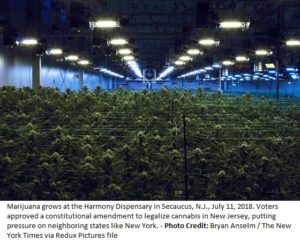

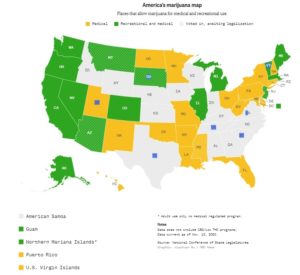

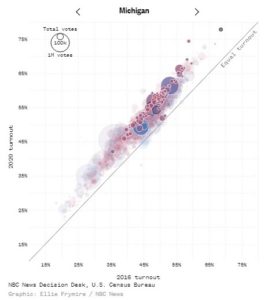

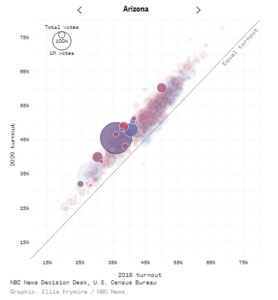
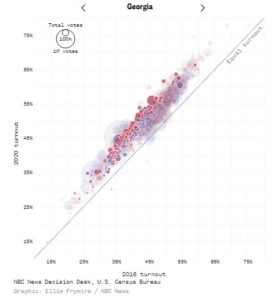
 Shut Up … all of you in the Peanut Gallery.
Shut Up … all of you in the Peanut Gallery.

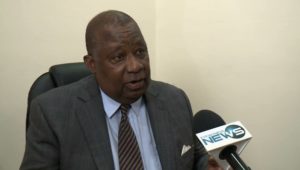 “This election I think has another dimension to it because our main industry is tourism, which is dependent on the administration’s view of containing the pandemic in a sense that unless the US president can control, [the US] will continue to have a very depressed economy, meaning high unemployment, people not working, and people running down savings,” he said.
“This election I think has another dimension to it because our main industry is tourism, which is dependent on the administration’s view of containing the pandemic in a sense that unless the US president can control, [the US] will continue to have a very depressed economy, meaning high unemployment, people not working, and people running down savings,” he said.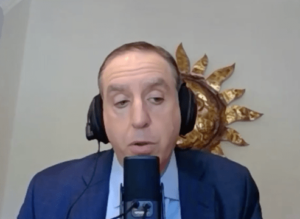 The impact of the pandemic on today’s election, ranging from voter turnout to whether it will be a key point on which voters will base their choice, remains to be seen.
The impact of the pandemic on today’s election, ranging from voter turnout to whether it will be a key point on which voters will base their choice, remains to be seen.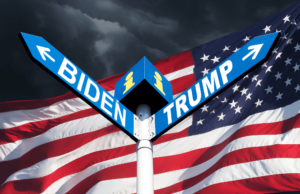 So in this editorial-article, the protagonist recommended the POTUS selection of Joe Biden from a pandemic protection perspective, but Donald Trump from a laissez-fare Offshore Banking regulation perspective.
So in this editorial-article, the protagonist recommended the POTUS selection of Joe Biden from a pandemic protection perspective, but Donald Trump from a laissez-fare Offshore Banking regulation perspective.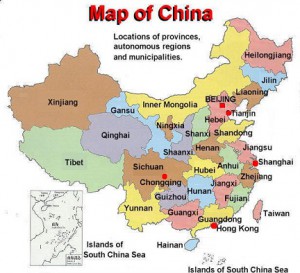

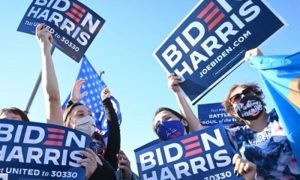

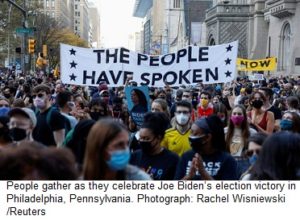
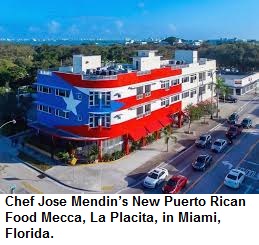 Perez’s recollection — a storm victim reminding him that “Puerto Ricans are Americans” — was part of Democrats’ outreach in Wynwood, a part of Miami once considered a Boricua enclave. But the effort proved to be too late for many Puerto Ricans. Instead of gaining support among Puerto Ricans, Democrats lost ground. Four years after winning Florida by 113,000 votes, Trump won it again on Nov. 3 by triple that amount.
Perez’s recollection — a storm victim reminding him that “Puerto Ricans are Americans” — was part of Democrats’ outreach in Wynwood, a part of Miami once considered a Boricua enclave. But the effort proved to be too late for many Puerto Ricans. Instead of gaining support among Puerto Ricans, Democrats lost ground. Four years after winning Florida by 113,000 votes, Trump won it again on Nov. 3 by triple that amount.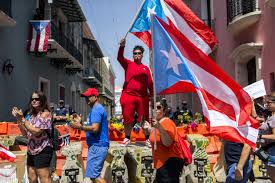 Trump’s numbers even surpassed the number of Puerto Ricans who in Florida’s 2018 U.S. Senate race supported Republican Rick Scott. Odio said Scott received about 29% of the Puerto Rican vote after visiting the island seven times after Maria, ahead of his election. In that election, those numbers were enough to help Scott edge a win over former U.S. Sen. Bill Nelson in a razor-thin election that went to a recount.
Trump’s numbers even surpassed the number of Puerto Ricans who in Florida’s 2018 U.S. Senate race supported Republican Rick Scott. Odio said Scott received about 29% of the Puerto Rican vote after visiting the island seven times after Maria, ahead of his election. In that election, those numbers were enough to help Scott edge a win over former U.S. Sen. Bill Nelson in a razor-thin election that went to a recount. Wanna get elected in the Unites States?
Wanna get elected in the Unites States?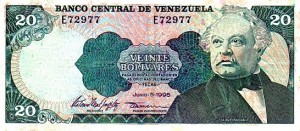 Featured article quotation:
Featured article quotation:  What’s next for Cuba … and Venezuela?
What’s next for Cuba … and Venezuela? Socialism continues in Cuba and Venezuela both. The revolutions in those countries have stalled. This has been the case for many years, decades and even generations. Perhaps more is needed than just influencing American Foreign Policy towards these countries; perhaps there is the need to impact domestic policy from inside the country. This is the approach of the Go Lean roadmap in regards to Cuba.
Socialism continues in Cuba and Venezuela both. The revolutions in those countries have stalled. This has been the case for many years, decades and even generations. Perhaps more is needed than just influencing American Foreign Policy towards these countries; perhaps there is the need to impact domestic policy from inside the country. This is the approach of the Go Lean roadmap in regards to Cuba.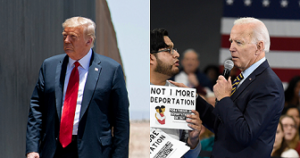 In 2016, many Caribbean people – i.e. Jamaicans – wanted the Democratic Party candidate, Hillary Clinton, to win the Presidency, hoping for a More Liberal Immigration policy.
In 2016, many Caribbean people – i.e. Jamaicans – wanted the Democratic Party candidate, Hillary Clinton, to win the Presidency, hoping for a More Liberal Immigration policy. 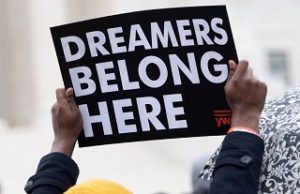 Most of the Jamaican Diaspora in the US –
Most of the Jamaican Diaspora in the US – 
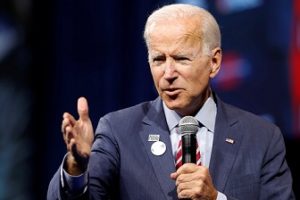 Unless your ancestors were native to these shores, or forcibly enslaved and brought here as part of our original sin as a nation, most Americans can trace their family history back to a choice – a choice to leave behind everything that was familiar in search of new opportunities and a new life. Joe Biden understands that is an irrefutable source of our strength. Generations of immigrants have come to this country with little more than the clothes on their backs, the hope in their heart, and a desire to claim their own piece of the American Dream. It’s the reason we have constantly been able to renew ourselves, to grow better and stronger as a nation, and to meet new challenges. Immigration is essential to who we are as a nation, our core values, and our aspirations for our future. Under a Biden Administration, we will never turn our backs on who we are or that which makes us uniquely and proudly American. The United States deserves an immigration policy that reflects our highest values as a nation.
Unless your ancestors were native to these shores, or forcibly enslaved and brought here as part of our original sin as a nation, most Americans can trace their family history back to a choice – a choice to leave behind everything that was familiar in search of new opportunities and a new life. Joe Biden understands that is an irrefutable source of our strength. Generations of immigrants have come to this country with little more than the clothes on their backs, the hope in their heart, and a desire to claim their own piece of the American Dream. It’s the reason we have constantly been able to renew ourselves, to grow better and stronger as a nation, and to meet new challenges. Immigration is essential to who we are as a nation, our core values, and our aspirations for our future. Under a Biden Administration, we will never turn our backs on who we are or that which makes us uniquely and proudly American. The United States deserves an immigration policy that reflects our highest values as a nation. … We can get close but never quite catch up. One realizes that this is the same with immigrating to the United States. Despite being a Nation of Immigrants (NOI), new ones can never catch up with the Settlers. Consider the historicity of this distinction in the Appendix article
… We can get close but never quite catch up. One realizes that this is the same with immigrating to the United States. Despite being a Nation of Immigrants (NOI), new ones can never catch up with the Settlers. Consider the historicity of this distinction in the Appendix article 

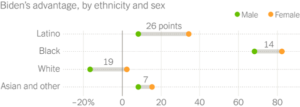
 We find that in certain societies, the “man code” has penetrated all aspects of society, not just prisons; think “locker room talk”, “Blue Codes” for conduct among law enforcement officials or bonding among soldiers in foxholes or trench-warfare ; there is even a “code of silence” among gang members or organized crime figures.
We find that in certain societies, the “man code” has penetrated all aspects of society, not just prisons; think “locker room talk”, “Blue Codes” for conduct among law enforcement officials or bonding among soldiers in foxholes or trench-warfare ; there is even a “code of silence” among gang members or organized crime figures. Many times people flee the region to mitigate abusive situations; even more troubling, as victims they may have encountered an attitude of complacency and indifference among public safety authorities. The following
Many times people flee the region to mitigate abusive situations; even more troubling, as victims they may have encountered an attitude of complacency and indifference among public safety authorities. The following  … this is a special group in the population of the New World, the Americas. This group has been victims and villains. To the point that academicians and clinicians alike can conclude that “hurt people hurt people”.
… this is a special group in the population of the New World, the Americas. This group has been victims and villains. To the point that academicians and clinicians alike can conclude that “hurt people hurt people”. Most times the discipline and attitudes learned at home forms the adult character that people become.
Most times the discipline and attitudes learned at home forms the adult character that people become. Analogies abound … as to why it is important to “nip bullying in the bud”. If we do nothing – or not enough – then conditions of Unequal Justice go from “bad to worse”. The bad actor can emerge from
Analogies abound … as to why it is important to “nip bullying in the bud”. If we do nothing – or not enough – then conditions of Unequal Justice go from “bad to worse”. The bad actor can emerge from 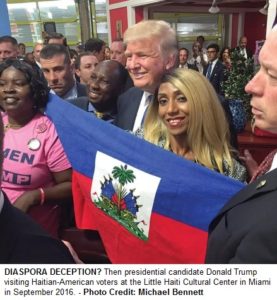 In September 2016, then Republican presidential candidate came to Miami’s Little Haiti and made an unexpected pitch to Haitian-American voters, who have historically backed Democrats.
In September 2016, then Republican presidential candidate came to Miami’s Little Haiti and made an unexpected pitch to Haitian-American voters, who have historically backed Democrats. But Imbert says Trump’s disdainful neglect of Haiti since then has only helped to worsen its poverty and political chaos. Trump’s vulgar remark about Haiti was the low point — a betrayal that hurt more, Imbert says, because he’d gone out on a personal limb to support Trump.
But Imbert says Trump’s disdainful neglect of Haiti since then has only helped to worsen its poverty and political chaos. Trump’s vulgar remark about Haiti was the low point — a betrayal that hurt more, Imbert says, because he’d gone out on a personal limb to support Trump. Haiti continues to be the poorest country in the Western Hemisphere. They boast bad dysfunction!
Haiti continues to be the poorest country in the Western Hemisphere. They boast bad dysfunction!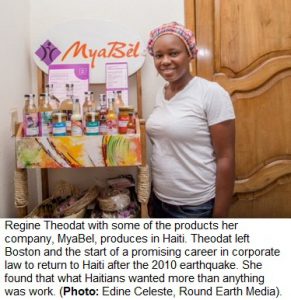 Yet still, many mothers have stepped in, stepped up and are showing love to this land!
Yet still, many mothers have stepped in, stepped up and are showing love to this land!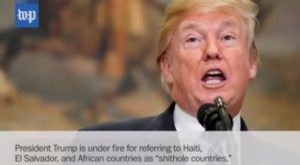 Donald J. Trump called Haiti a “shit-hole” country while negotiating the details for an immigration reform bill with his political opponents.
Donald J. Trump called Haiti a “shit-hole” country while negotiating the details for an immigration reform bill with his political opponents.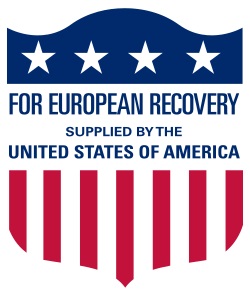 Europe endured a lot of dysfunction during the 20th Century; think World War I and World War II. Let’s face it, these European countries did NOT deserve any kindness or help (such as the
Europe endured a lot of dysfunction during the 20th Century; think World War I and World War II. Let’s face it, these European countries did NOT deserve any kindness or help (such as the 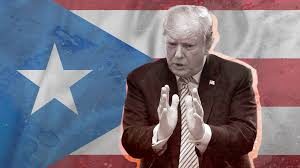 Puerto Ricans in Puerto Rico have no vote nor voice in the American capital city of Washington, DC. But let them leave and relocate to the US mainland, as is their right as American citizens, and then they can participate fully in the balloting for federal and state elections.
Puerto Ricans in Puerto Rico have no vote nor voice in the American capital city of Washington, DC. But let them leave and relocate to the US mainland, as is their right as American citizens, and then they can participate fully in the balloting for federal and state elections. This is the reality of unrequited love. The people of the island of Puerto Rico love America – they give blood, sweat and tears. But America does not always love the island back. This has always been
This is the reality of unrequited love. The people of the island of Puerto Rico love America – they give blood, sweat and tears. But America does not always love the island back. This has always been  … The Go Lean movement (book and blog-commentaries) asserts that Caribbean stakeholders need to take their own lead for their Caribbean destiny, but it does acknowledge that we have a dependency to the economic, security and governing eco-systems of the American SuperPower. This dependency is derisively called a parasite status, with the US as the host.
… The Go Lean movement (book and blog-commentaries) asserts that Caribbean stakeholders need to take their own lead for their Caribbean destiny, but it does acknowledge that we have a dependency to the economic, security and governing eco-systems of the American SuperPower. This dependency is derisively called a parasite status, with the US as the host. Puerto Ricans represent 27% of Hispanics of voting age in Florida, trailing only Cuban-Americans. While it’s unclear how many are Democrats or Republicans, Democrats have widened the gap of Hispanic voters registered for this election over the GOP compared with 2016. The gains were in counties with a high number of Puerto Ricans including Orange County, home to Orlando, and Hillsborough, home to Tampa. Polk County, where the Puerto Rican population has more than doubled since 2013, saw the fastest growth of Latino registered voters, with Democrats registering 21,000 more voters than Republicans. The gap in 2016 was 15,000. But those same counties also have a very high number of voters registered without party affiliation.
Puerto Ricans represent 27% of Hispanics of voting age in Florida, trailing only Cuban-Americans. While it’s unclear how many are Democrats or Republicans, Democrats have widened the gap of Hispanic voters registered for this election over the GOP compared with 2016. The gains were in counties with a high number of Puerto Ricans including Orange County, home to Orlando, and Hillsborough, home to Tampa. Polk County, where the Puerto Rican population has more than doubled since 2013, saw the fastest growth of Latino registered voters, with Democrats registering 21,000 more voters than Republicans. The gap in 2016 was 15,000. But those same counties also have a very high number of voters registered without party affiliation.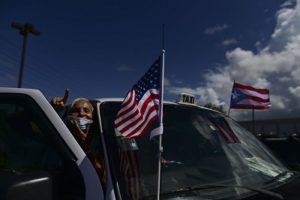 “Both campaigns are doing it thinking this will bounce back to Florida,” said Carlos Suárez, a political science professor at the University of Florida.
“Both campaigns are doing it thinking this will bounce back to Florida,” said Carlos Suárez, a political science professor at the University of Florida.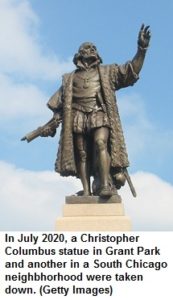 It is October 12. This is a holiday in many lands. This used to be Columbus Day; but now, as part of Civil Rights Reform, it has been rebranded. It is now called Indigenous Peoples Day in some places, while other places celebrate National Heroes Day.
It is October 12. This is a holiday in many lands. This used to be Columbus Day; but now, as part of Civil Rights Reform, it has been rebranded. It is now called Indigenous Peoples Day in some places, while other places celebrate National Heroes Day. Today is the Monday closest to October 12 – Day of Discovery by Christopher Columbus – so it is a day set aside as a Holiday in many places. But alas, there have been many communities that have remediated their historical appreciation for Christopher Columbus.
Today is the Monday closest to October 12 – Day of Discovery by Christopher Columbus – so it is a day set aside as a Holiday in many places. But alas, there have been many communities that have remediated their historical appreciation for Christopher Columbus.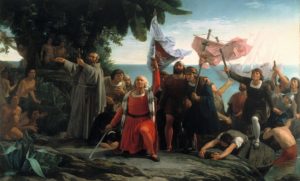
 The United States of America had been a majority White (European) country for its
The United States of America had been a majority White (European) country for its